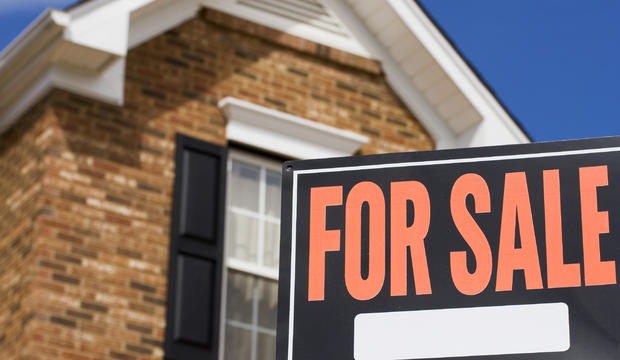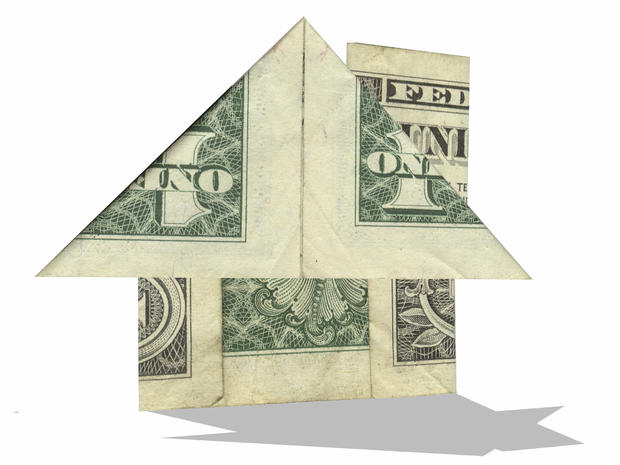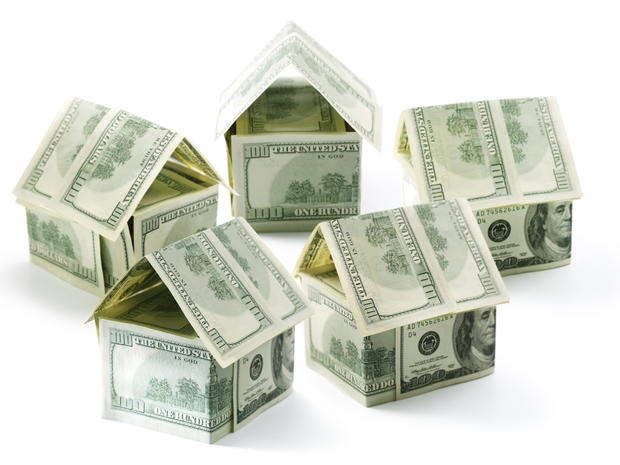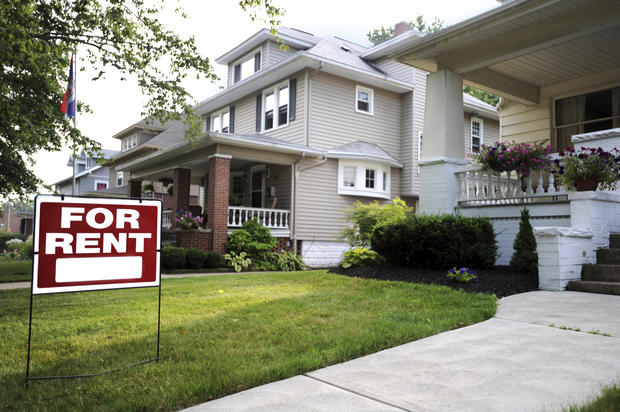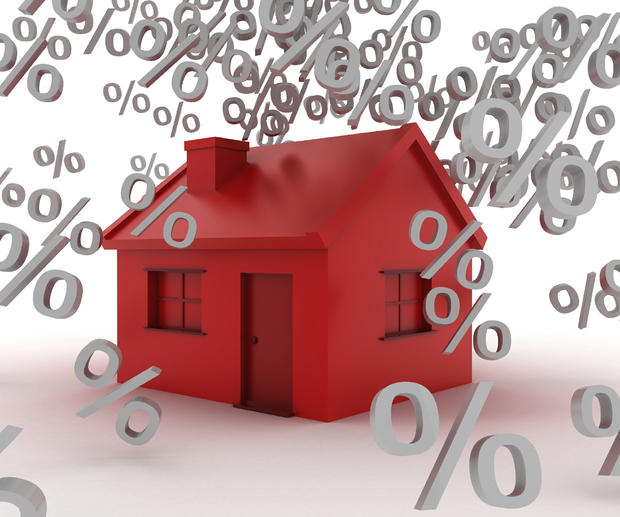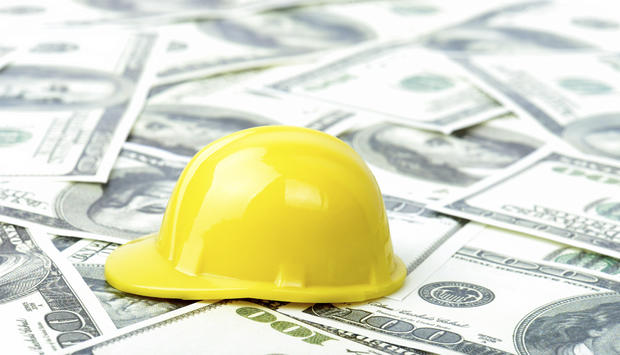13 real estate secrets only insiders know
The real estate market can be tough for everyone -- whether you're a buyer, seller, agent, broker or an investor. One minute the market can be hot -- the next, it's barely sizzling. The only way to become a true real estate expert and net a significant profit is to learn from the best.
So whether you're looking to buy a home this spring, sell a current property or try your hand at investing in the real estate market, remember these 13 insider secrets -- they could help you cash in big time.
This article was originally published by GOBankingRates.
1. Boost your appraisal with smart preparation
For all their numerical exactitude, appraisers are people, too, and certain things will turn them off, including strong pet odors pets and cigarettes. So eliminate lingering scents, and "get rid of all the clutter in your home," said Jonathan Miller, a longtime real estate appraiser in New York. "It makes the home appear larger."
2. Sell your home faster with a home tour video
"More than 80 percent of all buyers now find their homes online, so when you have a YouTube video that comes up on Realtor.com, that's huge," said Ben Salem, who owns Ben Salem Properties in Beverly Hills, California. "The best part is that you're one click away from showing it to the whole world."
Salem has a series of home tour videos on his website. Catchy music and sharp camera work helps, too. It might cost a few hundred bucks but can be worth the investment.
3. Know which home additions add value -- and which don't
Some home improvements add value to your home but not all. A good rule of thumb is don't out-price the real estate market. This means don't shell out thousands and thousands of dollars on fancy renovations that potential homebuyers won't be able to afford -- especially if homes in your neighborhood don't boast the same types of upgrades. If that happens, you'll end up wasting a couple grand on that custom-made home theater or indoor pool.
Instead, do modest improvements on your home. For example, stick with remodeling your kitchen or bathroom. Or, focus on your home's exterior and replace the front door.
4. Talk your way into a quicker sale
Sometimes, your home's appeal will come down to talking up your community's stellar points, from excellent schools to ample green space and nearby entertainment. People looking at your home might not realize these advantages right away -- and even your real estate agent might miss some -- so be sure to highlight them.
To start, make a checklist of recent exciting developments you've seen, including upscale restaurants, museums, parks and other amenities.
5. You can avoid a home equity loan by selling off some equity
An alternative to taking a home equity line of credit, or HELOC, is a model that Equity Key has developed. It allows homeowners to sell off part of their equity without assuming debt. If home prices go up, for example, then Equity Key and the homeowner share in the gains. If home prices go down, the company assumes all the risk up to the amount paid.
"We're taking market risk alongside the homeowner," said Jeffrey Nash, Equity Key's co-founder and managing director. "If things are bad, we'll take all of the hits. And if things are good, we'll share in the gain."
6. Turning your home into a trust could help you save on taxes
With a Qualified Personal Residence Trust (QPRT), you can gift up to two homes -- in most cases, to children -- yet continue living in your home while avoiding federal estate taxes. With a QPRT, you set up an irrevocable trust yet retain the right to use the home for a pre-determined term (10 years is typical).
Once the term concludes, the grantor then pays rent to the trust. The beneficiaries become landlords and open a brokerage-type vehicle to receive payments titled to the trust. There's no income tax on those payments, a big plus for the beneficiaries.
7. Auctioning your home could be a smart option
With real estate in high demand in some areas, smart homeowners can actually start a bidding war for their properties.
"The most compelling reason for an auction is that a seller can decide when their property will be sold, instead of leaving it to the vagaries of the market, and specifically what date," said Rick Levin, president of Rick Levin and Associates, a Chicago-based real estate auction firm.
"And right now, demand is greater than supply for many homes in many parts of the country," he said. "So you get many types of bidders fighting for the home and driving the price higher until it sells."
8. The cap rate can reveal a property’s overall value
Two properties in different cities that generate the same income might not represent the same value. So if you're investing in real estate, then the capitalization rate -- or cap rate -- helps you determine how much your assets are really worth.
The cap rate is determined by dividing the net operating income by the current market value. So a property making X amount in New York will yield a low cap rate (because market values are high) compared to one making the same amount in Poughkeepsie, New York.
"This is because an area like Manhattan has a much larger population, has a more robust infrastructure setup -- including transportation options and local businesses -- and frankly is the place to be," said David Behin, CEO and co-founder of CityFunders, a New York-based crowdfunding site for real estate. "It is a trophy city whereas Poughkeepsie is not."
9. Turnkey real estate could be a real moneymaker
Many investors don't understand or even know about this potentially profitable sector. In essence, a turnkey property transaction is where the investor buys a fully vetted, redeveloped, managed property that (usually) has a tenant.
The idea here is to buy into a slice of the real estate market where a long-term buy-and-hold strategy is possible, meaning you can hold onto the purchase and expect rising property values. Be prepared also to handle property management, or hire someone to do it for you.
10. Renting is sometimes better than owning property
While your home might go up in value, it could also go down. Rich Arzaga, the founder and CEO of Cornerstone Wealth Management in San Ramon, California, examined 250 properties around the U.S. and went through close to 40 client files to project the financial impact of owning real estate versus liquidating it.
He found that "100 percent of the time, it was better to rent rather than own," he said. Here's why: The carrying costs, or expenses needed to maintain the asset, range from property taxes and home insurance to emergency repairs and renovations. In a rental situation, the landlord covers those costs, leaving the occupant free to invest revenue in other areas.
The wisdom here is to buy a home to enhance your quality of life -- not your portfolio.
11. Home equity lines of credit might never be cheaper
A future rate hike this year seems fairly certain. So if you're going for a home equity line of credit, now's the time to do it.
"I'm a big fan of home equity loans when used responsibly," said Bijan Golkar, CEO and senior advisor of FPC Investment Advisory in Petaluma, California. "Many people have most of their wealth trapped in their main home. Having a HELOC allows you to have quick access to capital and you can normally write off the interest on your taxes."
12. Mezzanine debt can get you in on the ground floor
If you're in a position to finance a building project, "mezzanine debt nowadays is a smart way to get in line to take over property in the event of a default," Behin said.
Mezzanine debt represents another layer of lending over and above the primary mortgage or construction loan equity. It is typically more expensive to the borrower because of the increased risk to the lender associated with this structure. "As is the case with any investment, the higher the risk, the higher the potential return," Behin said.
"When a company takes on mezzanine debt to fund, say, construction on a building, the building is not the collateral, but rather, ownership interest in the company is -- and the lender can take that from you," he explained. "If you feel confident in the business plan as well as with the sponsor of the project, mezzanine debt is a great way to get a high return and at the same time increase your chances of participating in a property takeover."
13. A 15-year fixed mortgage monthly payment isn't much more than a 30-year loan
Interest rates are generally lower on 15-year fixed-rate loans. A lower interest rate, and less interest to pay overall, makes the cost difference between that loan and a 30-year loan less than you might think in a monthly payment. For instance, in mid-November 2015 the interest rate was 2.96 percent on a 15-year loan in Illinois versus 3.86 percent for a 30-year term.
A $100,000 mortgage at 30 years and the above interest rate will cost you $460 a month; the 15-year mortgage is $689 a month. Yet $230 a month is just more than $7 a day -- not a high price to pay to shave 15 years off a mortgage.




